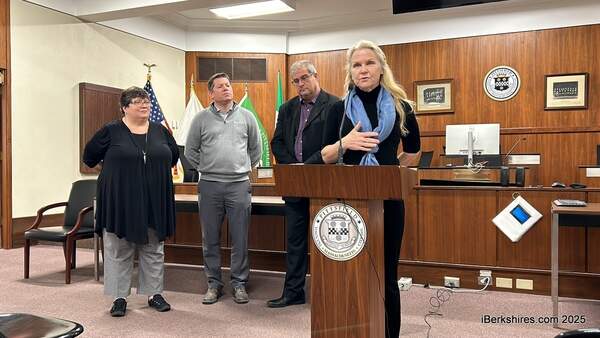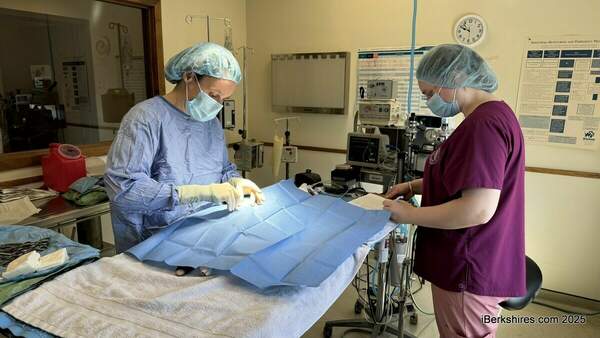PITTSFIELD, Mass. — Several key Berkshire County mental health and community organizations across the region are partnering on a suicide prevention conference to be held in Pittsfield in September.
New Perspectives on Populations at Risk in Berkshire County will be held on Tuesday, Sept. 10 from 8 am to 4:30 pm at Bousquet Mountain Ski Area in Pittsfield. The event is aimed at social workers, licensed mental health counselors, licensed alcohol and drug counselors, nurses and psychologists.
The program is sponsored by Berkshire Health Systems, the Berkshire Coalition for Suicide Prevention, the Massachusetts Department of Public Health Suicide Prevention Program, the Brien Center, the Austen Riggs Center and NAMI of Berkshire County. Applications have been submitted for 6.5 continuing education units (CEU) for those professionals in attendance.
This conference will focus on new perspectives on populations at risk for suicide in Berkshire County. Racial justice and health equity principles will be presented with a focus on trauma-informed and healing centered approaches and applications. Suicide risk will be defined through societal structures and environments, rather than just identity traits. Societal mechanisms within systems of oppression that create and maintain high-risk conditions for suicide and the root causes of suicide risk through a community care lens will be identified. Priority populations, including people experiencing suicide ideation, who are at-risk of attempts and or death, and under-served and/or historically marginalized populations, will be reviewed. There will be a focus on youth, suicide loss survivors, and people living in rural areas. Concepts will be applied to the unique needs of the Berkshire County community.
Presentations include:
Keynote Address - Deconstructing Risk in Suicide Prevention: Ysabel Garcia, MPH, Founder of Estoy Aqui
Populations at Risk: Local, State and National Statistics: Brenda Bahnson, MSW, LICSW, Director of Ambulatory Behavioral Health Services at Berkshire Medical Center
Going Beyond Trauma Informed Care: Christine Callahan, LMHC, PMH-C, MBA, Berkshire Medical Center Department of Psychiatry
Suicide Loss Survivors: Brian Berkel, President of the Board of Directors for the Berkshire Coalition for Suicide Prevention; Bertha Connelly, retired human resources professional; and Cheryl Puntil, MN, APRN, PMH-CNS, BC, geriatric, medical, and adult psychiatric nurse
Living Experience Youth Panel moderated by Brenda Butler, MD, Medical Director of Child & Adolescent Psychiatry at Berkshire Medical Center.
Small group discussions moderated by Christine Callahan and Brian Berkel.
The conference costs $85 for general admission with CEUs or $35 for admission without CEUs. To register for this event, visit www.berkshirecoalition.org and click on Events. Registration is open until Wednesday, Sept. 4.
| If you would like to contribute information on this article, contact us at info@iberkshires.com. |















